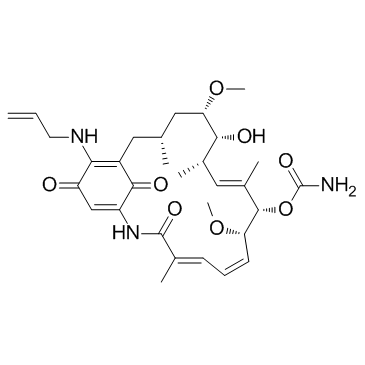
17-AAG
 Data Sheet
For research use only. Not for human use.
Data Sheet
For research use only. Not for human use.
* Required Fields.
Please complete the form below and you will get the price list in 1 minute.
* Required Fields.
Please complete the form below and we will contact you shortly.
* Required Fields.
Please complete the form below and we will contact you shortly.
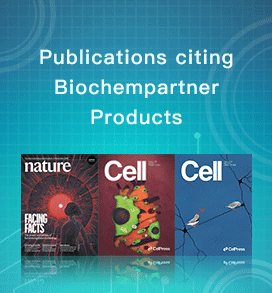
| CAS No. | 75747-14-7 | Cat. No. | BCP01735 |
| Name | 17-AAG | ||
| Synonyms | KOS 953;NSC 330507;Tanespimycin;CP 127374;BMS 722782; | ||
| SMILES | |||
| Chemical Name | |||
| Formula | C31H43N3O8 | M. Wt | 585.69 |
| Purity | 98% | Storage | Store at 4-8°C |
| Description | 17-AAG, an analog of geldanamycin, exhibits greater than 100 times higher binding affinity for Hsp90 derived from HER-2-overexpressing cancer cells (BT474, N87, SKOV3 and SKBR3) or BT474 breast carcinoma cells with IC50 values of 5-6 nM. 17-AAG causes the degradation of HER2, HER3, Akt, and both mutant and wild-type androgen receptor (AR), leading to the RB-dependent G1 growth arrest of prostate cancer cells such as LNCaP, LAPC-4, DU-145, and PC-3 with IC50 values of 25-45 nM. In addition to inducing apoptosis of Ba/F3 cells transformed with wild-type BCR-ABL with an IC50 of 5.2 μM, 17-AAG has the ability to induce apoptosis of cells transformed with imatinib mesylate-resistant T315I and E255K BCR-ABL mutants with IC50 values of 2.3 μM and 1.0 μM, respectively, by inducing the degradation of both wild-type BCR-ABL protein and mutants. | ||
Recommend Products
More >
-

-
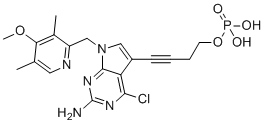
-
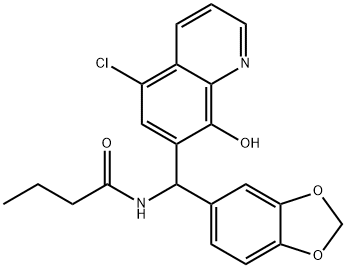
-

HSP27 inhibitor J2
Cat. No.:BCP46015
No.:2133499-85-9
Product Details -

-

Shepherdin
Cat. No.:BCP42633
No.:861224-28-4
Product Details -
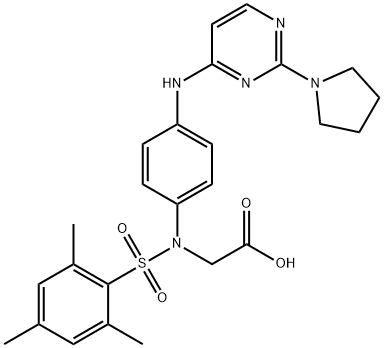
-
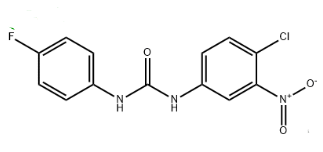
-
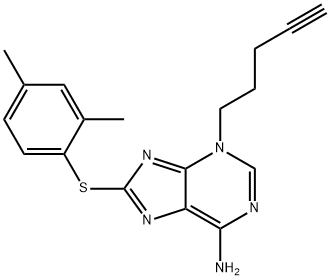
-
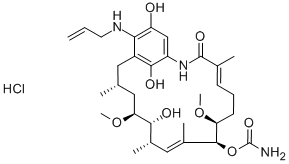
Retaspimycin hydrochloride
Cat. No.:BCP36508
No.:857402-63-2
Product Details -
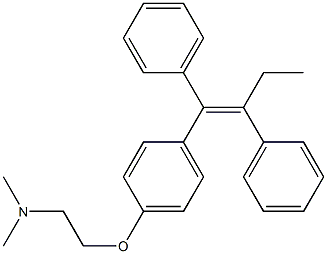
-
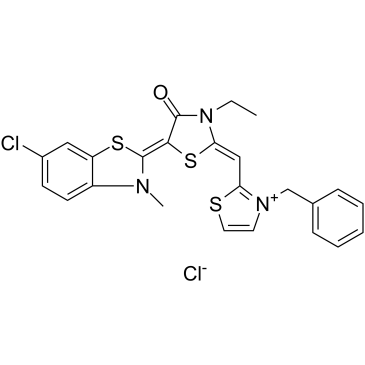
-
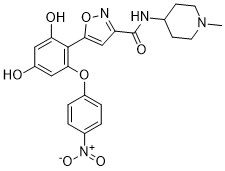
3-Methyltoxoflavin
Cat. No.:BCP30844
No.:32502-62-8
Product Details -
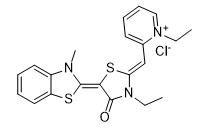
-
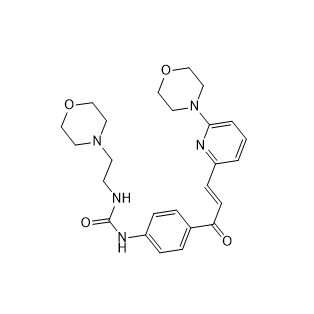
TRC 051384
Cat. No.:BCP29281
No.:867164-40-7
Product Details -
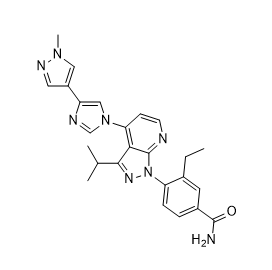
-
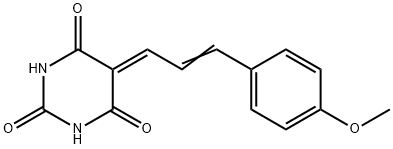
-
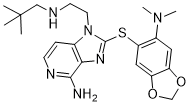
Debio 0932
Cat. No.:BCP27980
No.:1061318-81-7
Product Details -

Apatorsen Sodium
Cat. No.:BCP27709
No.:915443-09-3
Product Details -
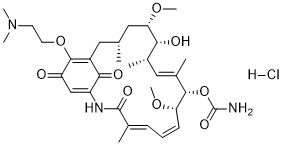
Alvespimycin HCl
Cat. No.:BCP22705
No.:467214-21-7
Product Details

Tags:17-AAG supplier,17-AAG purchase,17-AAG manufacturer,17-AAG distributor,17-AAG cost,17-AAG buy,17-AAG for sale




